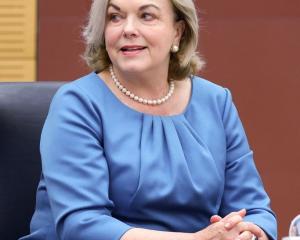New Zealand's attempts to normalise relations with Fiji since the 2014 elections have received another setback.
Prime Minister Frank Bainimarama is again proving Fiji's democracy, to put it politely, is rather thin and he will do what he likes. He will thumb his nose at Australia and New Zealand.
Fiji was ejected from the Pacific Islands Forum after the 2006 coup, but since after the elections has been reinstated as a full member.
Mr Bainimarama, however, boycotted the forum last weekend in the Federated States of Micronesia in protest at the involvement of Australia and New Zealand. They are not, he claims, true Pacific Island states.
While the forum was being held the leaders of two opposition parties and a trade union official were among five people detained by Fijian authorities after taking part in a public forum on Fiji's constitution.
While that constitution contains what are harsh provisions on public gatherings, the timing of the arrests was unhelpful and certainly showed to his large neighbours who is boss in Fiji.
Impotently, our Foreign Minister, Murray McCully, conveyed this country's ''close interest'' in the development.
''Obviously anything that constrains free speech and space for legitimate debate would be a concern to the New Zealand Government.''
Fiji's representative at the Pacific Islands Forum, Inoke Kubuabola, was spoken to along these lines.
Mr McCully, privately must be highly annoyed, while publicly saying New Zealand was endeavouring to support Fiji democracy and recognising an imperfect world.
Remember, this followed New Zealand Prime Minister Mr Key being harangued and insulted in June by Mr Bainimarama when he made the first official visit by a New Zealand prime minister since the coup.
At that time, Fiji banned certain mainstream New Zealand journalists, a sure sign critical comment would not be countenanced.
Simultaneously with the Pacific forum, Mr Bainimarama also reshuffled his Cabinet, making himself Foreign Minister in place of Mr Kubuabola, who was shifted to Minister of Defence.
Although it is understandable Fiji does not want to be bullied by Australia and New Zealand, Mr Bainimarama's behaviour is pushing the boundaries, not helped because the former foreign minister played an important role in maintaining a constructive relationship after the coup when most high-level contact was suspended.
Human rights organisations are concerned political opposition will be further stifled and restricted. As it is, the 2013 constitution prepared by Mr Bainimarama's Government differed markedly from that drawn up by a constitutional committee after public consultation.
Fiji's at-best shaky freedom of speech and freedom of assembly - both cornerstones of democracy - seem to be further under attack by strongman Mr Bainimarama. New Zealand, so desperately wanting at least a little progress towards real democracy, is made to look feeble.
Mr Bainimarama won the 2014 elections, which despite reservations were deemed credible, in a landslide. There is no doubting he is popular in Fiji and many believe he does a good job.
The world abounds with support for strong leaders who are prepared to put to one side democratic principles and civil liberties. President Rodrigo Duterte in the Philippines and Alexander Putin of Russia are blatant examples.
Mr Key has said his invitation to Mr Bainimarama to come to New Zealand for a formal state visit still stands, while Labour foreign affairs spokesman David Shearer has suggested Mr Bainimarama could still come but the ''state visit'' could quietly be put on hold.
No doubt, diplomats will be weighing up options as New Zealand looks to send a significant message to Fiji's leader.
Although Mr Bainimarama holds the upper hand, New Zealand cannot keep pretending Fiji is still making progress towards improved democracy. Rather, the situation is deteriorating by degrees.












